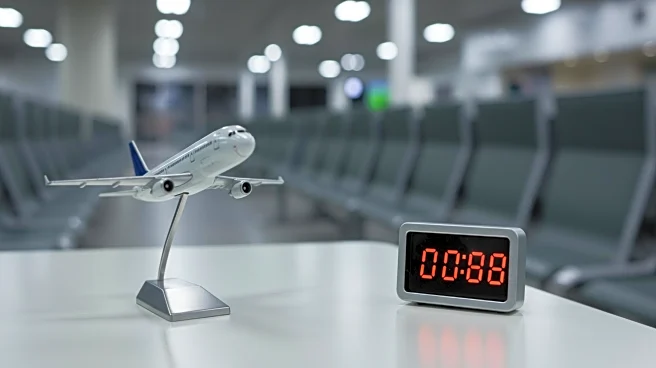What's Happening?
Air Canada is facing a major operational disruption as 10,000 of its flight attendants have gone on strike. The strike has led to the cancellation of numerous flights, affecting approximately 130,000 travelers daily. The flight attendants are demanding better pay and compensation for work performed during boarding and deplaning, which is currently unpaid. While Air Canada Express flights operated by Jazz Aviation and PAL Airlines remain unaffected, the strike has significantly impacted the airline's main operations.
Why It's Important?
The strike by Air Canada's flight attendants highlights ongoing labor disputes within the airline industry, particularly concerning compensation practices. The disruption affects not only domestic travelers but also international passengers traveling to and from Canada, potentially impacting tourism and business travel. The strike underscores the need for airlines to address employee concerns to maintain operational stability and customer satisfaction. It also puts pressure on Air Canada to negotiate terms that could prevent future disruptions.
What's Next?
Air Canada will need to engage in negotiations with the flight attendants' union to resolve the strike and restore normal operations. The outcome of these discussions could set a precedent for other airlines facing similar labor issues. Travelers affected by the strike may need to seek alternative arrangements, and the airline may face financial repercussions due to the cancellations. The industry will be watching closely to see how Air Canada addresses these challenges and whether it leads to broader changes in compensation practices.









